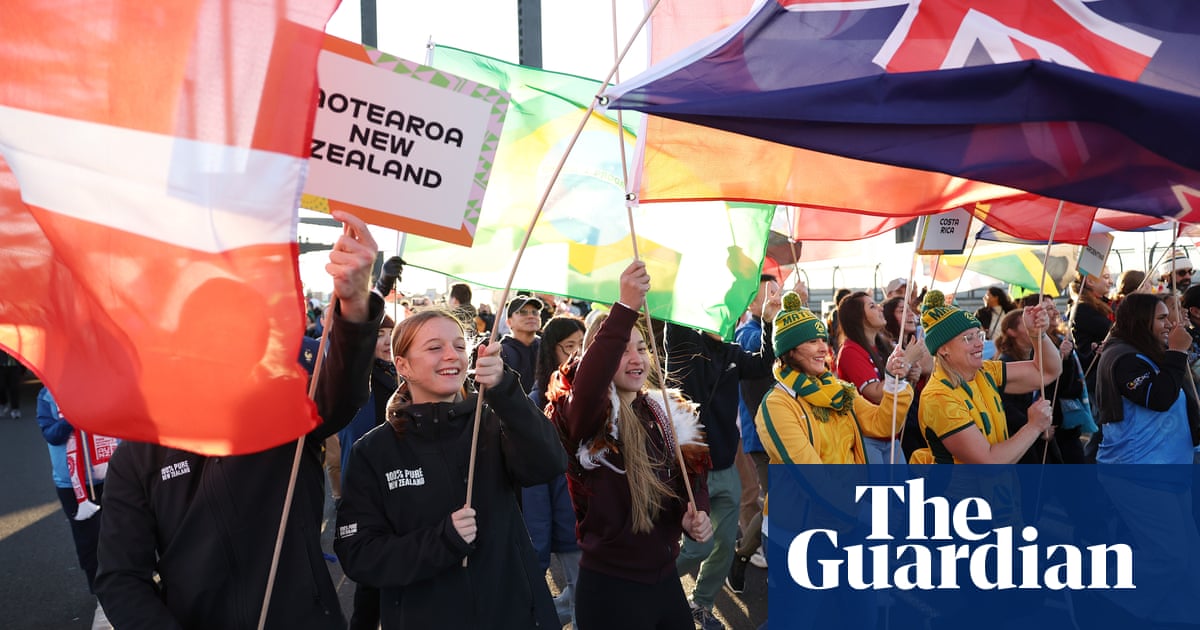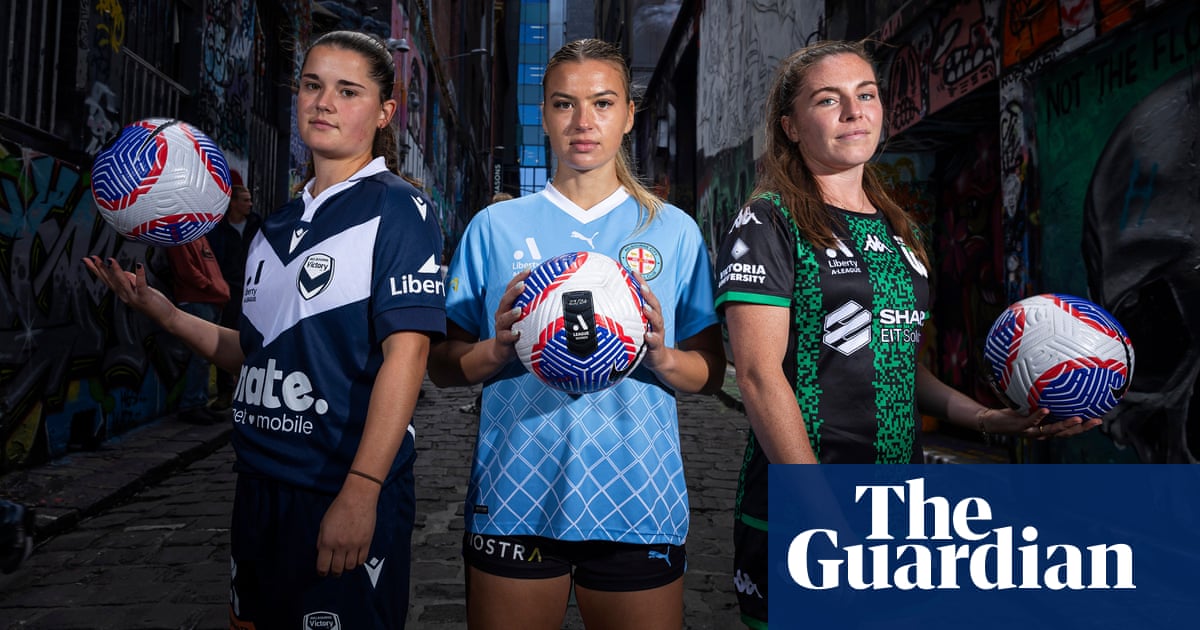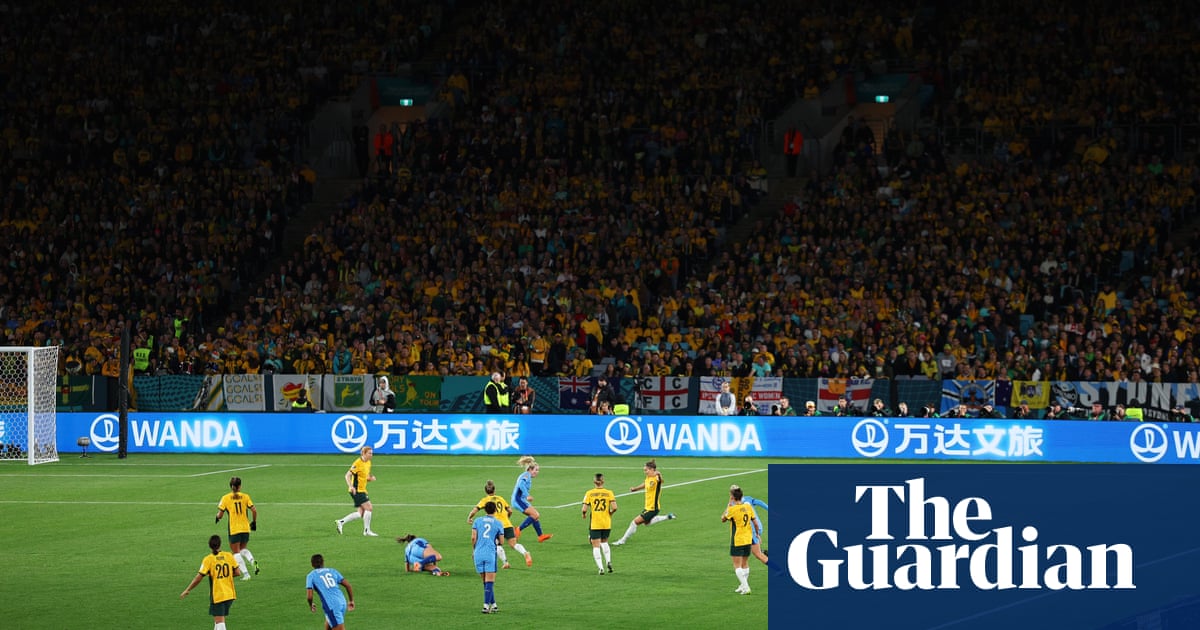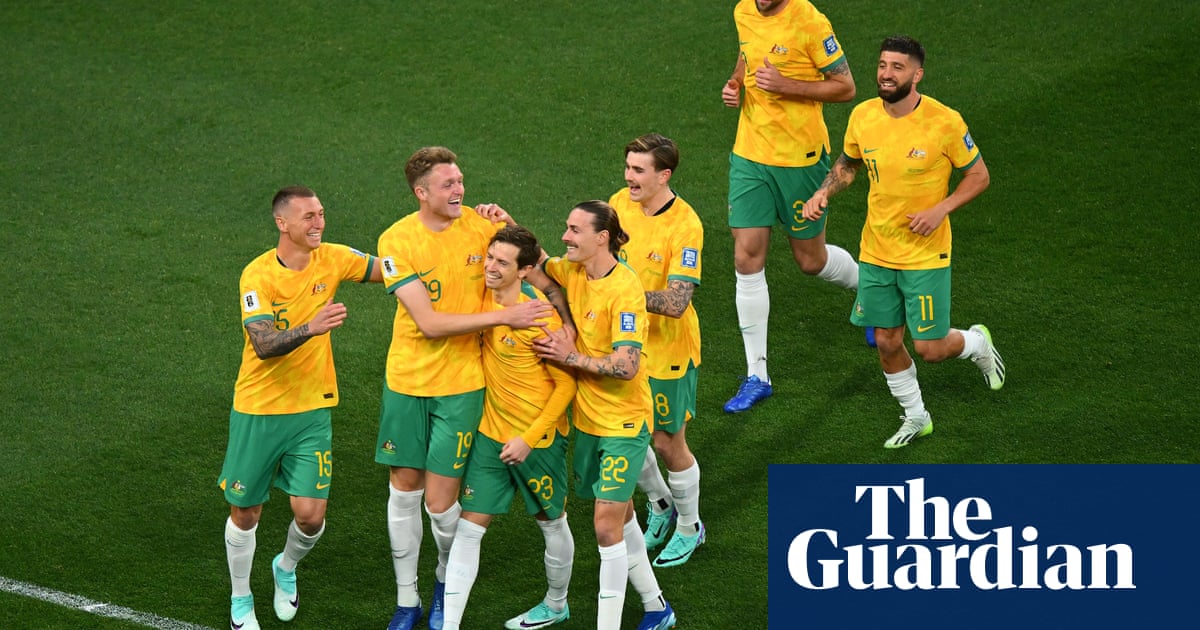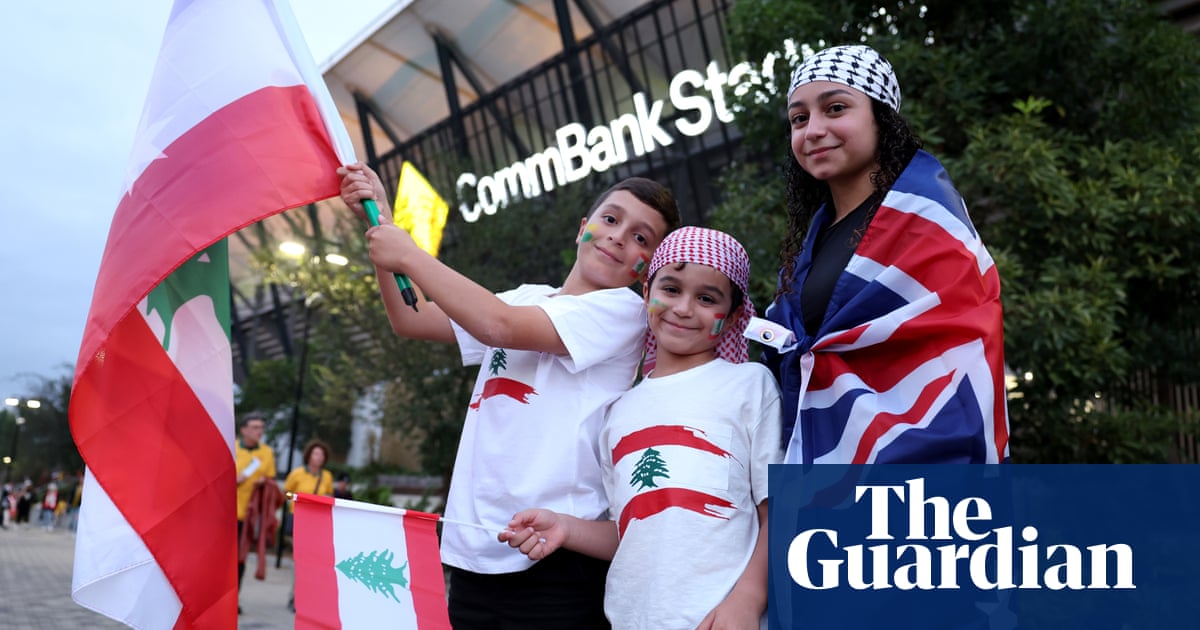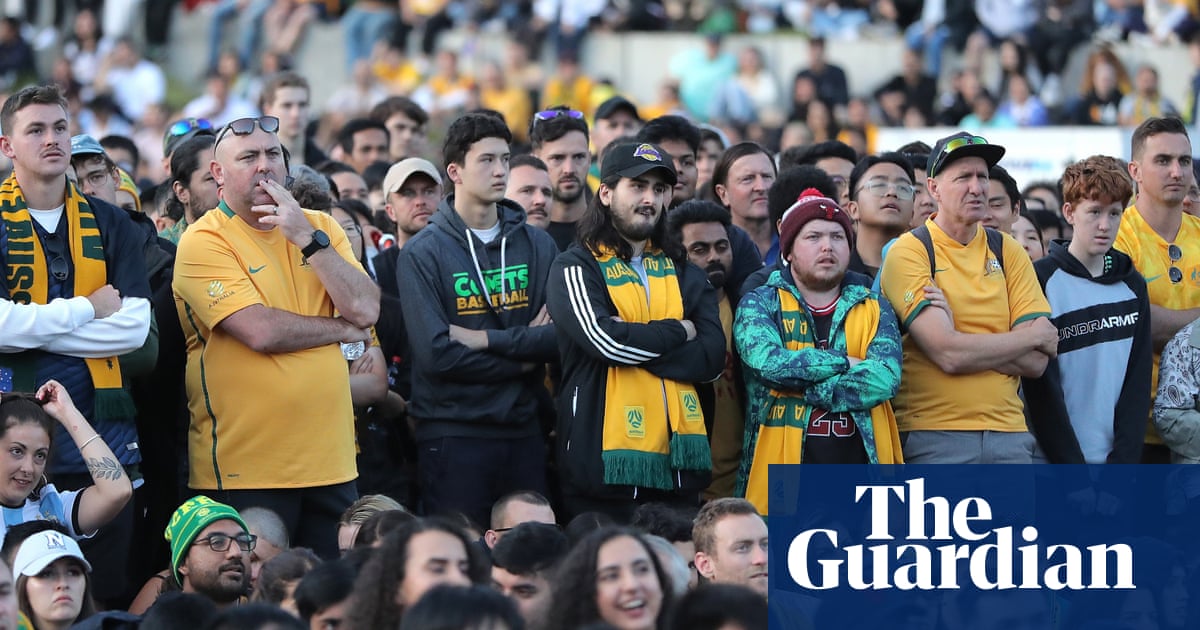
Exactly 11 hours before Fifa’s Wednesday morning deadline for bids to be lodged for the 2034 World Cup, Football Australia announced they were out. For football dreamers, it was a devastating blow. The logical ambition after hosting the Women’s World Cup, extinguished.
But for pragmatists, the opposite: a grand statement of common sense from a country that had spent $46m on a bid for the 2022 tournament which attracted a single vote from Fifa’s decision-makers.
Football is a sport loved the world over, but loved most – in monetary terms – by Saudi Arabia. The country has invested billions into football in recent years, and more into other sports like Formula One and golf. The country’s Public Investment Fund has bought a controlling stake in storied English club Newcastle. Footballers including Cristiano Ronaldo have been lured to play in the Saudi Pro League.
Amid this noise – nay, racket – Australia’s pitch for 2034 ultimately went unheard. Its fleeting part in the race, now well and truly drowned out.
Fifa fired the starting gun for potential bidders in early October. Within minutes Saudi Arabia declared its intent. Shortly after, the president of the Asian Football Confederation backed it in. One after another, football federations have followed suit: support is now claimed from more than 100 of Fifa’s 211 members.
Fifa relaxed their requirements for stadiums for the 2034 tournament which allowed a Saudi Arabian entry. Whereas 2030 required seven existing arenas, 2034 was amended to require just four. It was, coincidentally, the exact number Saudi Arabia could boast.
Saudi Arabia’s favour within Fifa is obvious. Saudi Football Federation president, Yasser Al Misehal, was elected to the Fifa council in February. The country’s Visit Saudi tourism scheme was a sponsor at last year’s men’s World Cup in Qatar. It was almost a last-minute sponsor of the Women’s World Cup, until backlash from organisers, players and fans. And it has already been awarded hosting rights of Fifa’s Club World Cup this year, starting in December.
Yet even as Saudi Arabia built support for its vision, Football Australia (FA) shared an interest in hosting the 2034 men’s tournament. Earlier in October, FA said it was “exploring the possibility of a bid”. The deadline to get one off the ground was extraordinarily tight given the need to consult federal and state governments as well as potential international co-hosts. The 48-team tournament requires 14 arenas with capacity of at least 40,000.
FA needed the federal government to provide funding and regulatory support for a bid, as well as coordinate international cooperation for any co-hosts. But the Albanese government resisted any public involvement in the matter, saying consistently the decision to bid was a matter for FA. Informal discussions did take place, but the government maintained an overly cautious, even nonsensical, position: any proposal would have to be considered as part of next year’s budget … despite a declaration of interest being due in days.
For a time, FA assessed whether it could lodge an expression of interest by the deadline and bring co-hosts on at a later date. Fifa regulations appeared to allow it during the bidding preparation phase, which will until the middle of next year. But against the growing tide of support for Saudi Arabia, lodging an expression of interest risked raising the ire of continental partners, who may then not have supported Australia’s ambitions for hosting other tournaments. This was the dynamic that ultimately drove Australia’s decision.
No moment highlights the forces forming against Australian interests more than a meeting of the Asian Football Confederation congress two weeks ago. In an interruption to the meeting agenda, first Japan, then Uzbekistan, then Lebanon backed the Saudi Arabian bid and called for unity in the confederation.
The words from Japan’s representative were particularly telling, and referenced that country’s decision to withdraw from hosting the 2023 Women’s World Cup. “As a result Asia won the bid and we saw the greatest success of the Fifa Women’s World Cup in Australia and New Zealand this year,” Tsuneyasu Miyamoto said.
When once FA might have considered the contest for bidding rights a meritocracy, the evidence building towards a pre-determined outcome was impossible to ignore. Ambitions were adjusted accordingly. Now, while 2034 is out of the question, the 2026 Women’s Asian Cup – where Saudi Arabia is again a rival – and the 2029 Club World Cup have become Australia’s targets.
Rather than spend his time winning over politicians in Zurich, the FA chief executive, James Johnson, believes more can be done to drum up support from local decision-makers. On Monday, the day before public news of the non-bid, Johnson gave a pre-recorded interview on his decision to Sky News. The channel is widely regarded as the most direct avenue to reach Australian politicians.
The interview – which might generously be described as soft – was broadcast within minutes of the announcement on Tuesday. The message was clear: an ambition less global, and more local, accepting a place in world football’s pecking order.
But in response to a question on the 2034 bid, Johnson couldn’t resist offering his opinion on the race. “This decision would normally have been taken in three years’ time,” he said. A flash of protest, injustice exposed? Not quite. “It is what it is,” he said.




